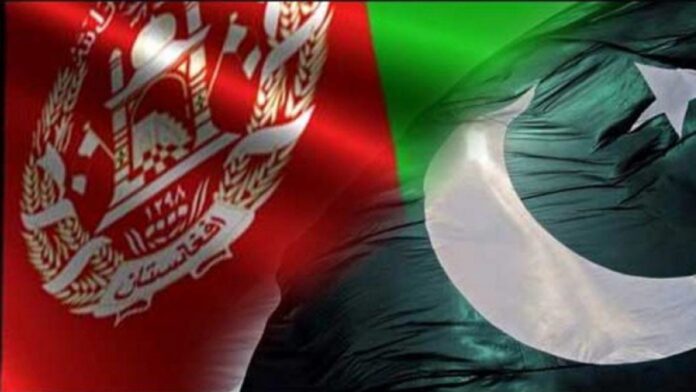Pakistan has played a critical role in the Afghan peace process as a facilitator. The leaders of the country have contributed positively to improving Pak-Afghan relations. Despite such welcoming steps, the instability in Afghanistan has ignited cross-border terrorism. A smooth Pak-Afghan relationship is the key to strategic stability in the region. The recent developments in the form of informal meetups indicate the efforts to strengthen Pak-Afghan relations. The Afghan Taliban have shown a preference to broker peace between Pakistan and Tehreek-e-Taliban Pakistan. At the same time, a positive response from Islamabad portrays the will to improve the linkage.
In his recent visit to China, Bilawal Bhutto Zardari emphasized that peace in Afghanistan is vital for regional stability and prosperity. He also reiterated the readiness to extend CPEC to Afghanistan in consultation with the Afghan interim government and for the mutual benefit of all parties. In the same way, Imran Khan’s government also played a significant role in strengthening the Pak-Afghan relations, especially after the withdrawal of the United States from Afghanistan. Building close and cooperative relations with Afghanistan is a high priority of Pakistan’s foreign policy and it constitutes a vital component of regional peace and stability. Pak-Afghan relations are fractured by misconceptions, lack of trust, and the negative role of non-state actors. For instance, since the Afghan Taliban returned to power last year, the attacks in Pakistan have increased significantly, especially along the mountainous border with Afghanistan. Islamabad regularly complained about the increasing pace of such attacks. Positive efforts from both sides have led to the initiation of peace talks between Pakistani officials and Tehreek-e-Taliban Pakistan.
The growing roar of instability in Pakistan after the Taliban takeover of Afghan soil deteriorated the ties between the two parties. Faced with rising violence, Pakistan is taking a tougher stance against Afghanistan’s Taliban to take strict actions against the militants hiding on their soil but so far, the Taliban have acted reluctantly to take any action. Pak-Afghan relations faced a sharp deterioration last month when Pakistan reportedly carried out airstrikes in eastern Afghanistan. According to UNICEF, almost 20 children lost their lives among the 40 civilian casualties. Pakistan did not confirm the attacks but the Foreign Ministry the country issued a warning to Afghanistan not to shelter violent non-state actors. In the fear of making more enemies, the pressure put the trembling Taliban regime in a corner. However, last week the Afghan Taliban hosted fresh peace negotiations between Pakistan and the figurative leaders of Tehreek-e-Taliban Pakistan. As per highly placed sources, a top Pakistani army commander, Lt. Gen. Faiz Hameed led the Pakistani delegation to meet the Taliban in the capital of Afghanistan, Kabul. Two days of secret discussions were held to discuss the affairs and promote peace in the country. Pakistan did not officially announce the trip while the leaders of Tehreek-e-Taliban Pakistan confirmed it. The Afghan Taliban have played a key role in facilitating this talk and it surely signals positive development in Pak-Afghan relations.
“The Islamic Emirate of Afghanistan, in good faith to promote peace, strives for the negotiating process to succeed and expects both sides to be tolerant and flexible,” stressed Mujahid, using the self-styled name of Taliban-ruled Afghanistan. The Tehreek-e-Taliban also informed on Wednesday that negotiations were underway with the role of Kabul leaders as mediators. A 10-day truce previously agreed to for the Muslim festival of Eid has been extended until May 30, said the militant statement. At the same time, some sources informed that the talks also led to the release of dozens of Pakistani Taliban from the prisons. The same ideology and close ties of the Pakistani Taliban with the Afghan counterparts bless them with shelter in the country. Their role in fueling instability in Pakistan is negatively affecting Pak-Afghan relations. The Afghan Taliban need to take a rigid stance against violent non-state actors which threaten the peace and stability of neighboring countries. Hosting peace talks creates a cornerstone for strong Pak-Afghan relations in the future, but more efforts are needed to enhance the trust and strengthen the bilateral links. Indeed, healthy Pak-Afghan relations are the key to determining the peace and stability of the region.
To conclude, Pakistan has played a very significant role in reshaping Afghanistan after the withdrawal of the United States forces. The country has been providing support and assistance to the poor people of Afghanistan during the crisis time. However, after the Taliban takeover of Afghanistan, the instability in Pakistan has increased a lot. Attacks in the country have been multiplied especially along the mountainous borders. Such an unstable environment is a bad omen for already critical Pak-Afghan relations. Pakistan has insisted the Afghan Taliban to suffocate the environment for violent and extremist non-state actors but the regime has failed to take tougher measures against the groups such as Tehreek-e-Taliban Pakistan. As these groups are responsible for fueling insurgency in Pakistan, the country demands strict measures from the Taliban regime in Afghanistan. After months of consistent efforts, the Afghan Taliban finally hosted peace negotiations meeting between Pakistani officials and leaders of Tehreek-e-Taliban Pakistan. This talk can turn out to be a starting point for a peaceful future if more serious efforts are made from both sides. Apart from addressing the issue of instability, these talks indicate a positive shift in Pak-Afghan relations. Such measures would surely strengthen the ties between Pakistan and Afghanistan in the future.




